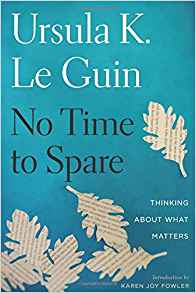Karen Burnham Reviews Short Fiction: khōréō and Asimov’s
The leading story in the latest issue of khōréō is particularly beautiful and impactful. In “Unname Me at the Altar” by Ashaye Brown, Bamidele is the child of a grandparent whose name may change every day. Every day she and her father reintroduce themselves over breakfast and find out who the grandparent is that day – old or young, male or female, etc. As a grandparent starts to forget the names, the only legacy left of a family altar that was destroyed during the war they fled from, they become increasingly upset. Bamidele is able to help them remember, as they had been secretly keeping a list of all the names they heard. It’s a sweet story of helping maintain family continuity after immigration forced by violence, but the ending has a tragic twist. Continuity is also a theme in “This Excessive Use of Pickled Foods” by Leora Spitzer. Bex is a Jewish immigrant to Konkarken Station, where she is one of the few humans, much less finding a Jewish community. She studies xenolinguistics and has an alien roommate, but is able to tap into memories of other Jews through history whenever she bites into pickled foods from a particular shopkeeper.
The September/October issue of Asimov’s leads off with a novelette by Greg Egan, “Solidity”. One day things and people start swapping around – posters change, people surrounding you are unfamiliar. Omar is a student when this begins, and we follow him as he tries to navigate back to his family. The only way people find to slow down the changes to the world around them is to keep watch on whoever they’re with (to prevent quantum uncertainty from kicking in on unobserved systems), but even that might not be enough. Omar pairs up with Rafiq, who’d had the same house and store as his father. How does society, and trust, work when people change whenever you’re not looking? After the initial massive disruption, people start coming up with ingenious work-arounds. There’s also a novelette by Alistair Reynolds, “Things to Do in Deimos When You’re Dead”. Per was a flower merchant taking cut-rate frozen travel across the solar system when he wakes up in a strange landscape. He meets Cicero and Hypatia, who explain the situation to him, that he was declared brain-dead and uploaded as per the fine print of his travel agreement, but that more of “him” survived the process and wound up in this virtual limbo. They take advantage of their position outside the system to make small changes that nudge things in beneficial directions, but they also start to fade away. It’s a sweet story. While I found the ending vague for my tastes, in a story of this kind it’s probably unavoidable. Eileen Gunn’s novelette, “One Night Stand”, is narrated by Terry, who picks the wrong guy to bring home from the bar. She gets killed, and her teenage daughter is kidnapped. She uses improvised ghost powers to nudge events towards saving her daughter. She also gets to reflect, a bit dispassionately, about her life and how her kids think of her (not particularly kindly). Gunn balances all the threads of the narrative nicely. Rounding out the quartet of novelettes in this issue is “Grandmother Troll” by Eleanor Arnason. It’s a lovely story centered on a lonely girl named Helga whose parents have a summer home outside of Reykjavik. She befriends a local shepherd named Kveldulf and, thanks to him, meets a recently reawakened troll. Helga makes friends with the troll over the seasons, getting a perspective on the old stories from someone who was there. When an unexpected storm hits, it’s up to Helga and the troll to try to help the elderly Kveldulf, making a minor saga of their own. The issue also has a novella by Kristine Kathryn Rusch, set in her Diving universe and starting a series that details “The Court Martial of the Renegat Renegades”.
“BAKEHAFU OK” by Jendayi Brooks-Flemister presents a world where some people have been transforming into different flavors of Bakehafu, or monsters. Rayna works at the Love Stop in Tokyo, where society is more accepting of the transformed than back in America. She’s a sex worker willing to work with the Bakehafu in both their human and monster forms. Ethan is newly transformed and terrified of his monster self, and Rayna is just the person to help him. It’s a great idea, although I felt the story pushed the limits of “consensual” sexual contact at times. “Island History” by Lia Swope Mitchell is an epistolary medical mystery tale. The letter writer is a doctor on an island where people are plagued by a disease that causes serious hallucinations. He and a newly arrived botanist, Bergen, are searching for anything that might help (while Bergen is falling for a local girl). When they eventually find the key to the mystery, it has social implications well beyond the medical realm, and of course it arrives too late for many victims.
Recommended Stories
“Unname Me at the Altar,” Ashaye Brown (khōréō 9/22)
“Solidity,” Greg Egan (Asimov’s 9-10/22)
“One Night Stand,” Eileen Gunn (Asimov’s 9-10/22)
This review and more like it in the December 2022 issue of Locus.
 While you are here, please take a moment to support Locus with a one-time or recurring donation. We rely on reader donations to keep the magazine and site going, and would like to keep the site paywall free, but WE NEED YOUR FINANCIAL SUPPORT to continue quality coverage of the science fiction and fantasy field.
While you are here, please take a moment to support Locus with a one-time or recurring donation. We rely on reader donations to keep the magazine and site going, and would like to keep the site paywall free, but WE NEED YOUR FINANCIAL SUPPORT to continue quality coverage of the science fiction and fantasy field.
©Locus Magazine. Copyrighted material may not be republished without permission of LSFF.









